EN
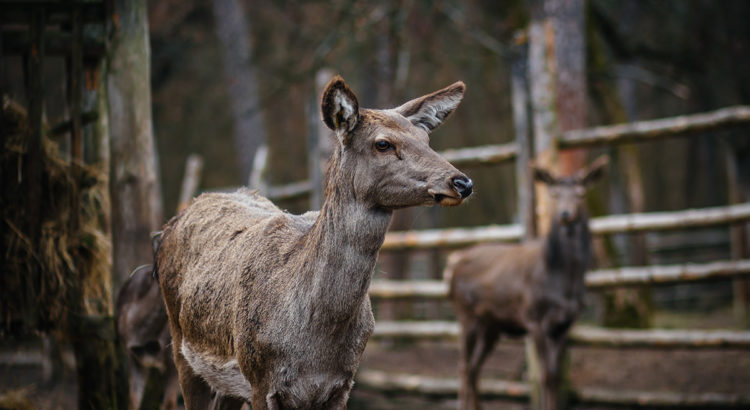
Biodiversity Protection
Our interdisciplinary research focuses on wild animal conservation in the context of preserving biodiversity.
Our research is conducted in several areas.
The first is to expand the current knowledge about the mechanisms shaping the biodiversity of agro-ecosystems. We determine how environmental factors (e.g., stress or foraging base in the habitat) influence the condition of animals, as well as the quality of technological parameters and the content and bioavailability of biologically active components in the raw materials obtained from them.
To understand the changes occurring in the environment, we also study the interactions between epigenetic factors (epizootic, climatic, and toxicological) and the physiological processes in animals in their natural habitats. An important goal of our research is also to identify species-specific adaptations of animals to environmental changes along with their consequences for homeostasis (the ability of the organism to self-regulate biological processes).
We focus on implementing reproductive biotechnics as tools for diagnosing, controlling, and preserving biodiversity, as well as developing markers of reproductive potential.
The interdisciplinary nature of our team allows for the comprehensive use of research material in accordance with the principle of 6R (refuse, reduce, reuse, recover, recycle, rethink). We prioritize the effective use of animal tissues for both research and application purposes – e.g., in medical and veterinary therapies.
We also collaborate with economic stakeholders and the State Forests towards the development of feed additives, reproductive biotechnics, and meat products with valuable nutritional properties.
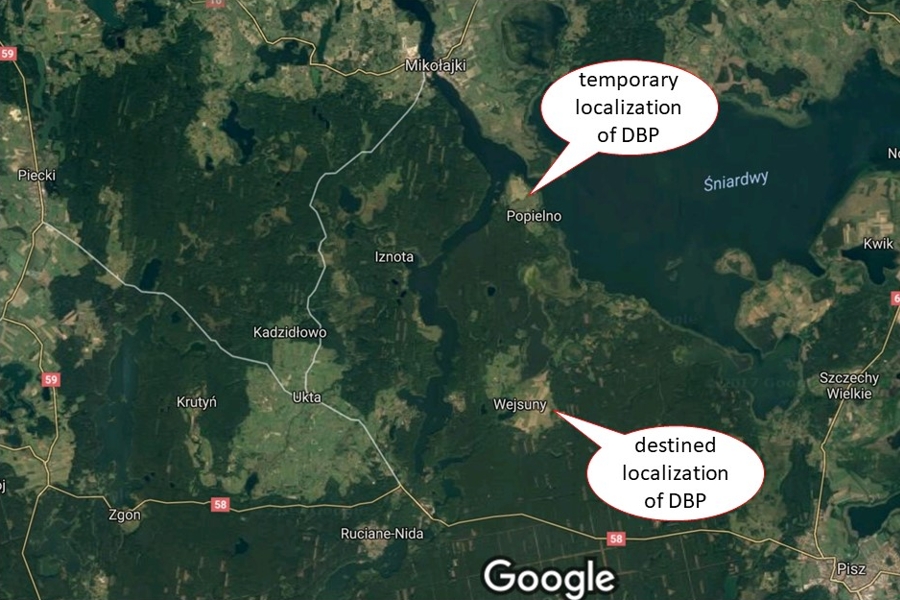
Ph.D.Students
- Boruszewska Dorota, M.Sc.
- Chabowska Agnieszka, M.Sc.
- Chu Dinh Toi
- Drabińska Natalia, M.Sc.
- Fotschki Bartosz, M.Sc.
- Fotschki Joanna, M.Sc.
- Górecki Adrian Ryszard, M.Sc.
- Grycmacher Katarzyna, M.Sc.
- Jadacka Monika, M.Sc.
- Janiak Michał, M.Sc. inż.
- Jura Magdalena, M.Sc.
- Jursza Ewelina, M.Sc.
- Kowalewska Marta, M.Sc.
- Kwiatkowska Joanna, M.Sc.
- Kur-Piotrowska Anna, M.Sc. inż.
- Likszo Paweł, M.Sc.
- Łupicka Martyna, M.Sc.
- Małysz-Cymborska Izabela, M.Sc.
- Nowialis Paweł, M.Sc.
- Ogrodowczyk Anna Maria, M.Sc.
- Przygrodzka Emilia, M.Sc.
- Reliszko Żaneta Paulina, M.Sc.
- Sawicki Tomasz, M.Sc.
- Sinderewicz Emilia, M.Sc.
- Socha Barbara Maria, DVM. M.Sc.
- Szczepańska Agata, M.Sc.
- Szymańska Magdalena Julia, M.Sc.
- Westfalewicz Błażej Jan, M.Sc.
- Witek Krzysztof Jan, M.Sc.
- Wojtasik Justyn, M.Sc.
- Wojciechowska Anna Maria, M.Sc.
- Ziętak Marika, M.Sc.
Graduate Studies
The Institute offers Ph.D. studies in the area of agricultural sciences, in two majors: animal reproduction and food science. Students participate in current investigations conducted in both Institute’s Divisions, including molecular, biochemical and physiological bases of domestic animals and fish reproduction; biotechnique and biotechnology of reproduction; biochemical and immunochemical properties of dietary glycoproteins; phytocompounds with a significant impact on consumer health, and application of in vivo methods in the evaluation of biological properties and safety of food.
The stationary PhD studies span for four years and are free of charge. They prepare students for mastering the degree of a doctor of agricultural sciences in the major of animal husbandry (Division of Reproductive Biology) or food technology (Division of Food Sciences), in compliance with Institute’s entitlements. Study agenda assumes a cycle of lectures and seminars. Their major objective is to enable the effective completion of research tasks as well as to improve professional qualifications of students and providing them with up to day interdisciplinary knowledge in the scope of biological and chemical sciences. The lectures are to be delivered by both experienced staff members of the Institute as well as experts from other renowned research centres.
Contact:
Human resources manager: mgr Joanna Papurzyńska;
tel. +48 89 523 46 31; e-mail: j.papurzynska@pan.olsztyn.pl
Ph.D. study manager: doc. dr hab. Aneta Andronowska;
tel. +48 89 539 31 20; e-mail: a.andronowska@pan.olsztyn.pl
Research Supporting Office
Communications and International Affairs Office
Iwona Kieda
Section Head
e-mail: i.kieda@pan.olsztyn.pl
tel: +48 887 808 082
Tomasz Jeliński
Main Specialist
e-mail: t.jelinski@pan.olsztyn.pl
tel:+48 89 500 32 22
Justyna Banasiak
Projects Specialist
e-mail: j.banasiak@pan.olsztyn.pl
tel: +48 89 500 32 21
Krzysztof Wilczek
Grants Specialist
e-mail: k.wilczek@pan.olsztyn.pl
tel: +48 89 500 32 23
Edyta Jermakow (projects: Ministry of Education „Explorers”; ERA Chair „WELCOME2”)
Brand manager
e-mail: e.jermakow@pan.olsztyn.pl
tel: +48 89 500 32 23
Joanna Nykiel (project: Pathways2Synergies „CROSSPATHS”)
Projects Specialist
e-mail: j.nykiel@pan.olsztyn.pl
Development and Investment Projects Section
Katarzyna Capłap
Section Head
e-mail: k.caplap@pan.olsztyn.pl
tel: +48 89 500 32 35
Janusz Wróblewski
Property Executive
e-mail: j.wroblewski@pan.olsztyn.pl
tel: +48 89 500 32 37
Katarzyna Gawdzińska-Duda
e-mail: k.gawdzinska-duda@pan.olsztyn.pl
tel: +48 89 500 32 36
Project Monitoring and Settlement Section
Anna Gwizdek-Wiśniewska
Section Head
e-mail: a.gwizdek-wisniewska@pan.olsztyn.pl
tel: +48 89 500 32 30
Monika Wysocka-Kawa
Specialist for Financial Settlement
e-mail: m.wysocka-kawa@pan.olsztyn.pl
tel: +48 89 500 32 30
Natalia Grodzka
Specialist for Financial Settlement
e-mail: n.grodzka@pan.olsztyn.pl
tel: +48 89 500 32 30
Human Resources Development Section
Maciej Cieślik
HR Business Partner
e-mail: m.cieslik@pan.olsztyn.pl
tel: +48 89 500 32 40
Zakrzewska-Hałuszka Iwona
Senior Organisational Specialist
e-mail: i.zakrzewska-haluszka@pan.olsztyn.pl
tel: +48 89 500 32 41
Agnieszka Sikorska
Senior HR Development Specialist
e-mail: a.sikorska@pan.olsztyn.pl
tel: +48 89 500 32 41
Financial Department
Accountant General
Ewa Wyszomierska
e-mail: e.wyszomierska@pan.olsztyn.pl
tel.: +48 89 500 32 60
Vice Accountant General
Anna Sienica
e-mail: a.sienica@pan.olsztyn.pl
tel.: +48 89 500 32 61
Invoices, Settlements
Aleksandra Mrozek
e-mail: a.mrozek@pan.olsztyn.pl
tel.: +48 89 500 32 64
Beata Wojnowska
e-mail: b.wojnowska@pan.olsztyn.pl
tel.: +48 89 500 32 63
Ewa Zakrzewska-Wiśniewska
e-mail: e.zakrzewska-wisniewska@pan.olsztyn.pl
tel.: +48 89 500 32 65
Kamila Sznajderowicz-Kupren
e-mail: k.sznajderowicz-kupren@pan.olsztyn.pl
tel.: +48 89 500 32 62
Accountancy (Research Station in Popielno)
Joanna Michałowska
e-mail: j.michalowska@pan.olsztyn.pl
tel.: +48 89 500 32 67
Emilia Rucińska
e-mail: e.rucinska@pan.olsztyn.pl
tel.: +48 89 500 32 66
Institute’s History
1988 – foundation of the Centre for Agrotechnology and Veterinary Sciences of the Polish Academy of Sciences with two Departments:
- Department of Food Technology, and
- Department of Reproductive Endocrinology;
1992 – change of the organizational structure – establishing two Divisions:
- Division of Food Science, and
- Division of Reproductive Endocrinology and Pathophysiology;
1994 – obtaining the right to confer a doctor?s degree of Agricultural Sciences in the major of:
- Food Technology and Nutrition,
- Animal Husbandry;
1995 – change of the Centre status into the Institute of Animal Reproduction and Food Research of the Polish Academy of Sciences;
1998 – opening a new laboratory building of the Division of Food Science located at Tuwima 10 Str.;
1999 – obtaining the right to confer a post doctoral degree in the major of:
- Food Technology and Nutrition, and
- Animal Husbandry;
2000 – termination of the research activity of the Department of Developmental and Experimental Endocrinology in Poznań and the Department of Sensory Analysis of Foodin Warsaw;
2001 – obtaining the status of EU Centre of Excellence in the area of FOOD & HEALTH by the Food Science Division;
2002 – obtaining the status of Centre of Excellence in the area of ANIMAL REPRODUCTION by the Division of Reproductive Endocrinology and Pathophysiology, from the Minister of Science, Chairman of the State Committee for Scientific Research, within the resolution of October 3, 2002;
2007 – opening a new laboratory building of the Division of Reproductive Endocrinology and Pathophysiology located at Bydgoska 1/8 Str.;
2008 – Change of the organizational structure (re-organization of Departments through their merging or establishing new Laboratories);
2008 – Celebration of the 20th anniversary of the Institute.
The function of Institute Director General was performed by:
- Prof. Dr. Tadeusz KRZYMOWSKI, Full Member of PAS (1988 – 1997)
- Prof. Dr. Halina KOZŁOWSKA (1997 – 2000)
- Prof. Dr. Adam ZIĘCIK, Corresponding Member of PAS (2000 – 2004, 2004 – 2008, 2008 – 2012)
- Prof. Dr. Mariusz K. PISKUŁA, Corresponding Member of PAS (2012 – 2024)
The function of Institute Scientific Director was performed by:
- Prof. Dr. Halina KOZŁOWSKA (1988 – 1997)
- Prof. Dr. Adam ZIĘCIK (1992 – 1995, 1998 – 2000)
- Prof. Dr. Jan KOTWICA (1995 – 1998)
- Prof. Dr. Henryk KOSTYRA (1997 – 2004)
- Prof. Dr. Jan GLOGOWSKI (2000 – 2004)
- Prof. Dr. Józef FORNAL (2004 – 2007)
- Prof. Dr. Dariusz SKARŻYŃSKI (2004 – 2008, 2008 – 2012)
- Prof. Dr. Mariusz K. PISKUŁA (2007 – 2008, 2008 – 2012)
The function of Chairman of the Institute Scientific Council was performed by:
- Prof. Dr. Antoni RUTKOWSKI, Full Member of PAS (1988 – 1998)
- Prof. Dr. Tadeusz KRZYMOWSKI, Full Member of PAS (1999 – 2002)
- Prof. Dr. Zbigniew ŚMIETANA (2003 – 2006)
- Prof. Dr. Jan KOTWICA, Corresponding Member of PAS (2007 – 2010)
- Prof. Dr. Włodzimierz BEDNARSKI, Corresponding Member of PAS (2010 – 2014)
The function of vice Chairman of the Institute Scientific Board was performed by:
- Prof. Dr. Adolf HORUBAŁA, Full Member of PAS (1988 – 1998)
- Prof. Dr. Tadeusz GARBULIŃSKI, Full Member of PAS (1988 – 1996)
- Prof. Dr. Wiesław BAREJ, Corresponding Member of PAS (1996 – 1998)
- Prof. Dr. Jan KOTWICA (1999 – 2002; 2003 – 2006)
- Prof. Dr. Antoni RUTKOWSKI, Full Member of PAS (1999 – 2002)
- Prof. Dr. Ryszard AMAROWICZ (2003 – 2006, 2007 – 2010, 2010 – 2014)
- Prof. Dr. Jadwiga PRZAŁA (2007 – 2010)
- Prof. Dr. Andrzej CIERESZKO (2010 – 2014)
At present, the Institute is directed by:
- Prof. Dr. Mariusz K. PISKUŁA – Director General
- Prof. Dr. Dariusz SKARŻYŃSKI – Scientific Director
- Dr. Barbara WRÓBLEWSKA – Scientific Director
The function of the Chairman of the Institute Scientific Board is performed by:
- Prof. Dr. Tomasz JANOWSKI
The function of vice Chairman is performed by:
- Prof. Dr. Ryszard AMAROWICZ
- Prof. Dr. Andrzej CIERESZKO, Corresponding Member of PAS
Board of Institute Directors
Director General
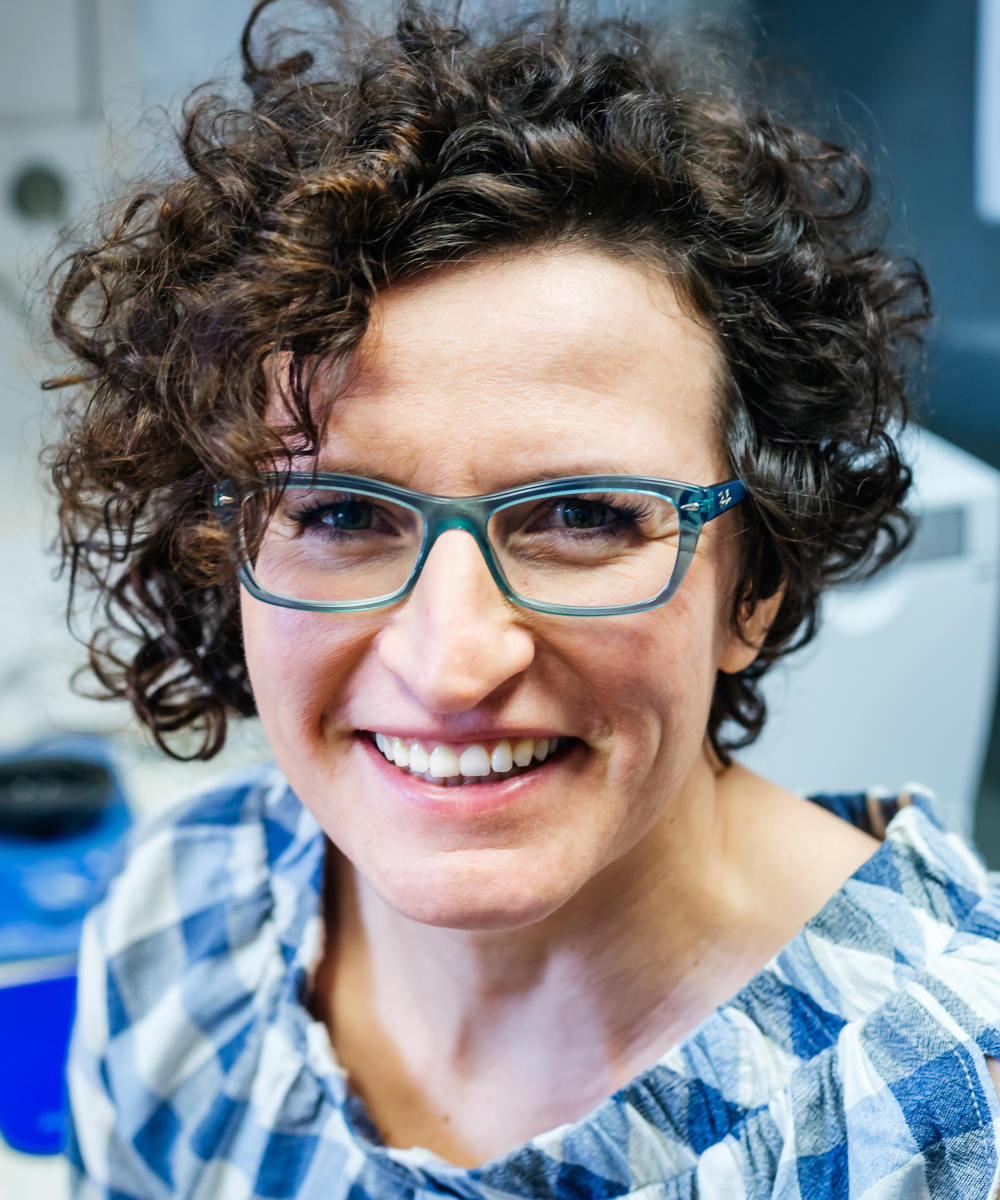 |
Prof. Monika M. KACZMAREK e-mail: instytut@pan.olsztyn.pl Trylińskiego 18 Str.; 10-683 Olsztyn tel. +48 89 500 32 00 |
Scientific Director
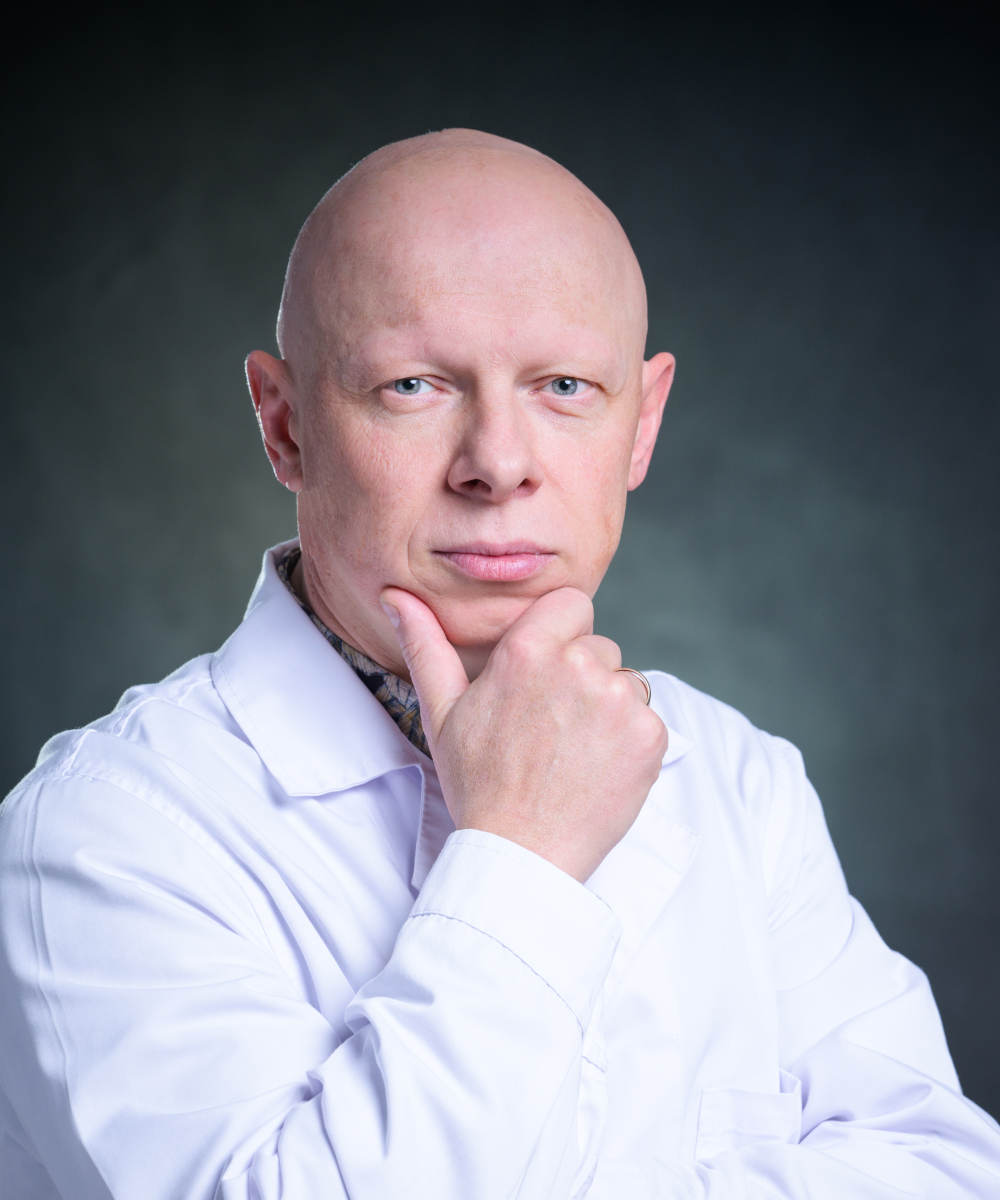 |
Prof. Wiesław WICZKOWSKI e-mail: w.wiczkowski@pan.olsztyn.pl tel. +48 89 500 33 65 |
General Affairs Director
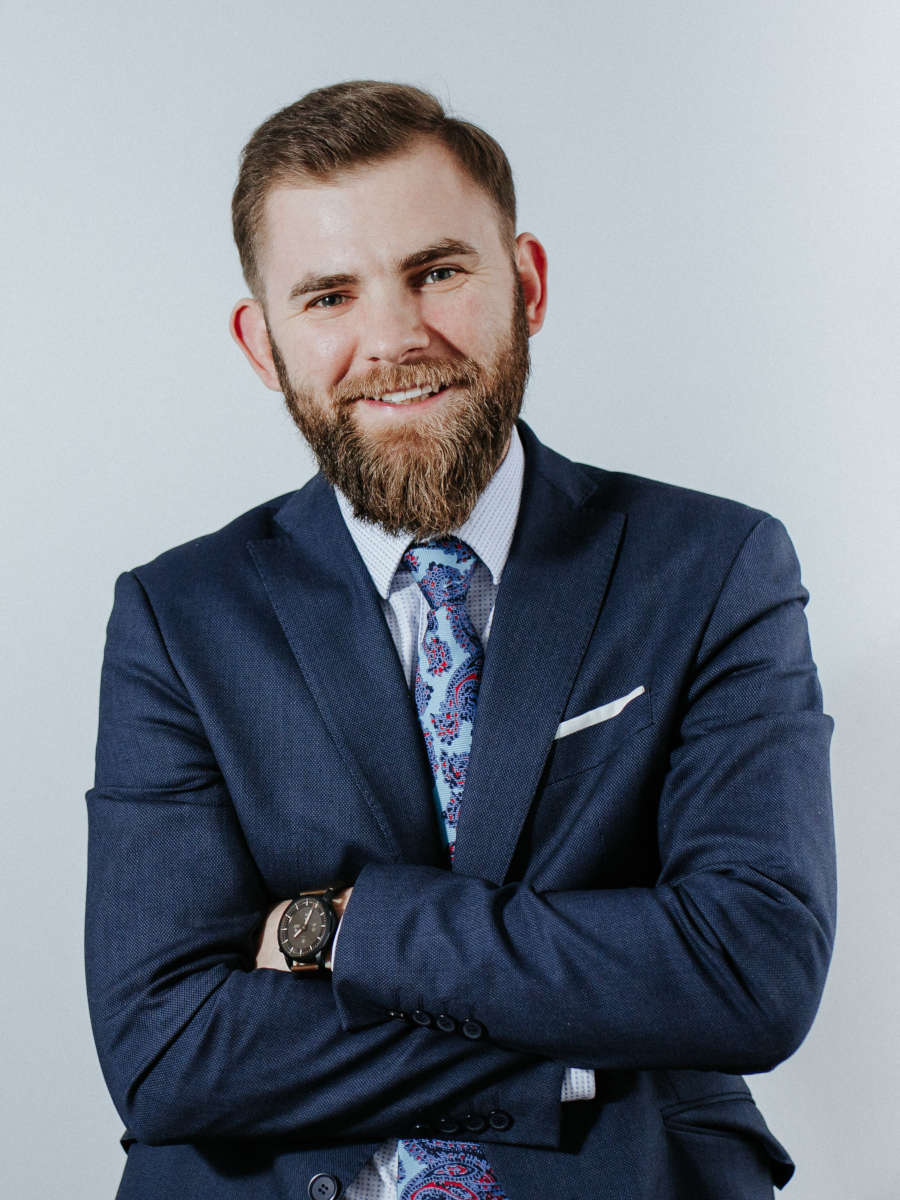 |
Michał ŻUREK, M.Sc. e-mail: m.zurek@pan.olsztyn.pl tel. +48 89 500 32 03 |
Structure
Research tasks of the Institute are being accomplished in its two Divisions: Division of Food Sciences and Division of Reproductive Biology.
Division Of Food Science
Research profile
- determination of the effect of food and nutrition on the regulation of physiological processes in humans;
- analyses of biologically-active components of food of plant origin;
- development of methodology for food evaluation, and for studying interactions between food components and their interactions with human body.
Objectives
- improving food and nutrition in order to preserve welfare of humans;
- identifying mechanisms of prophylactic effects of food in the prevention of pathologies;
- elaborating practical solutions.
Division Of Reproductive Biology
Research profile
- investigation of the reproductive function, mainly in pigs, cows and sheep, at a level of central, local and cellular regulations of hormonal, neural and vascular systems;
- analyses of immunoendocrine changes accompanying uteritis;
- reproductive biochemistry and biotechnology of fish as well as mammal and bird males.
Objectives
- recognizing the apt course of processes proceeding in the reproductive system;
- understanding the causes of pathological disorders in reproduction;
- elaborating practical solutions.